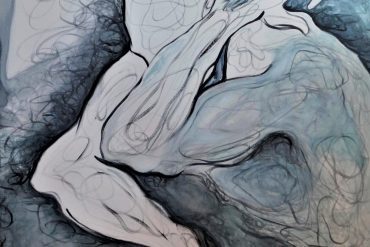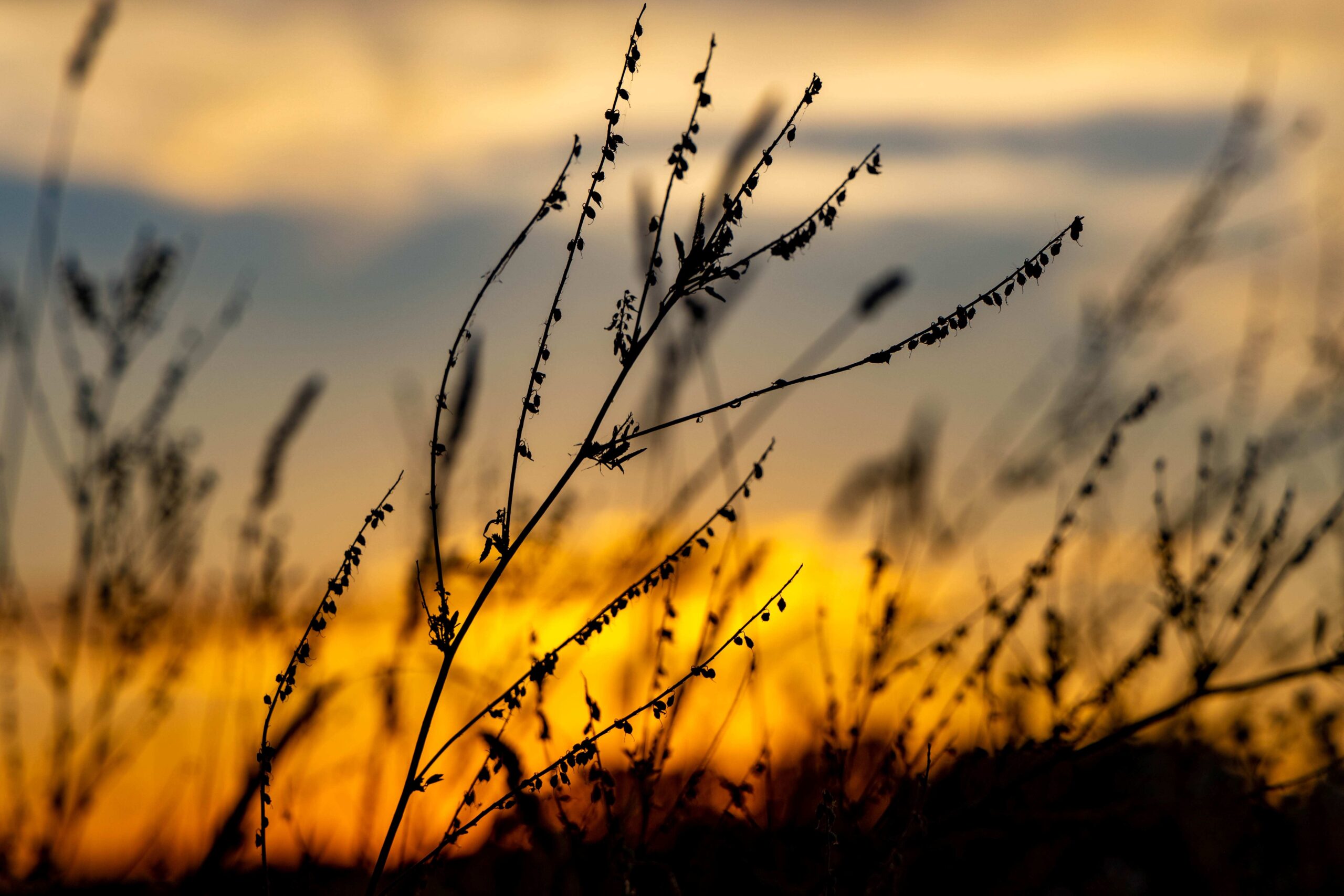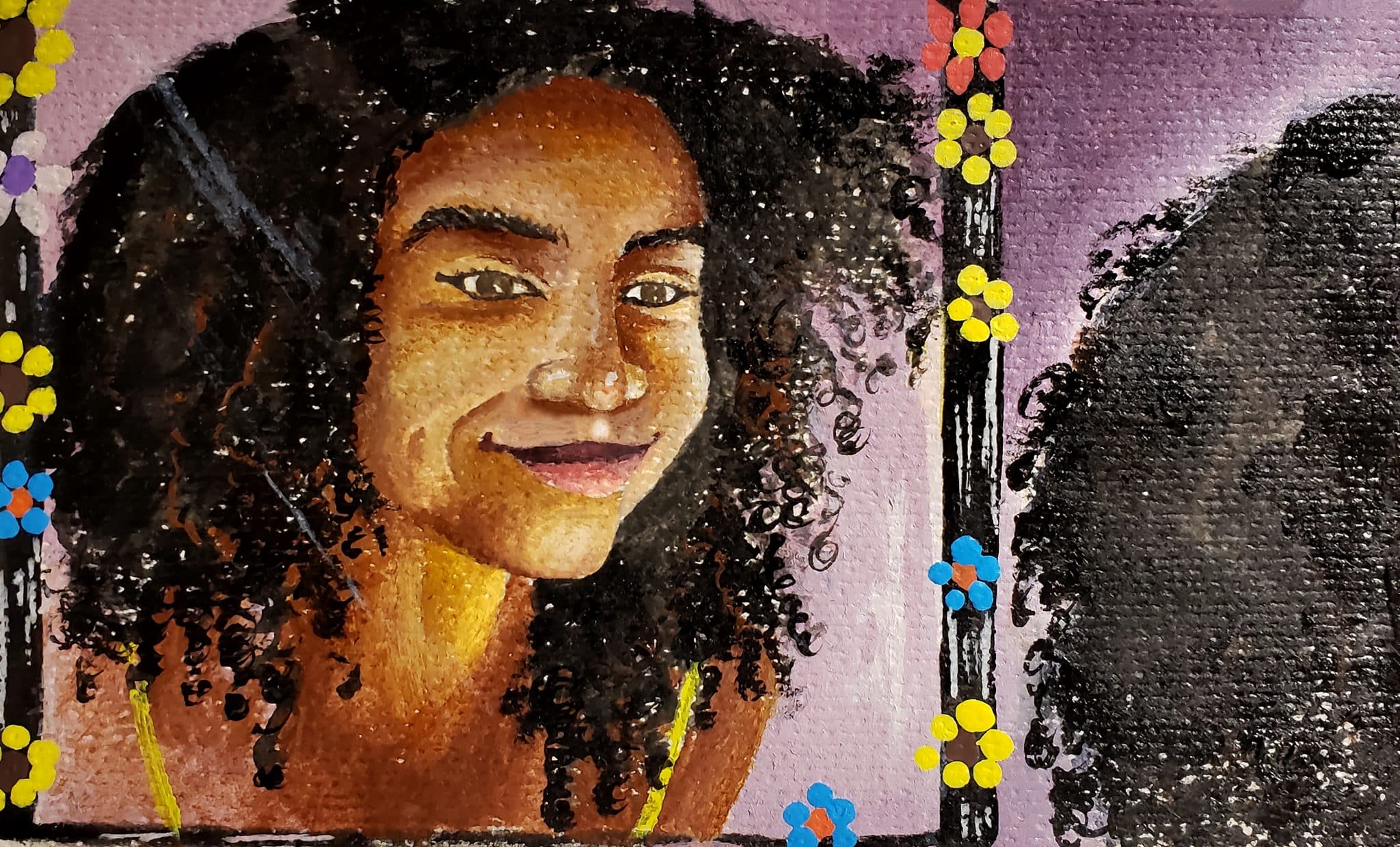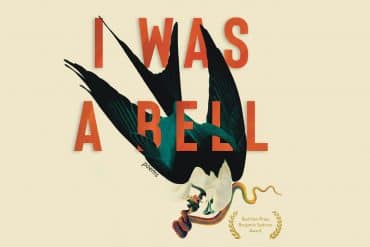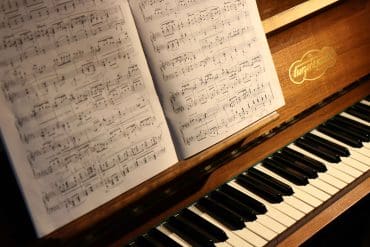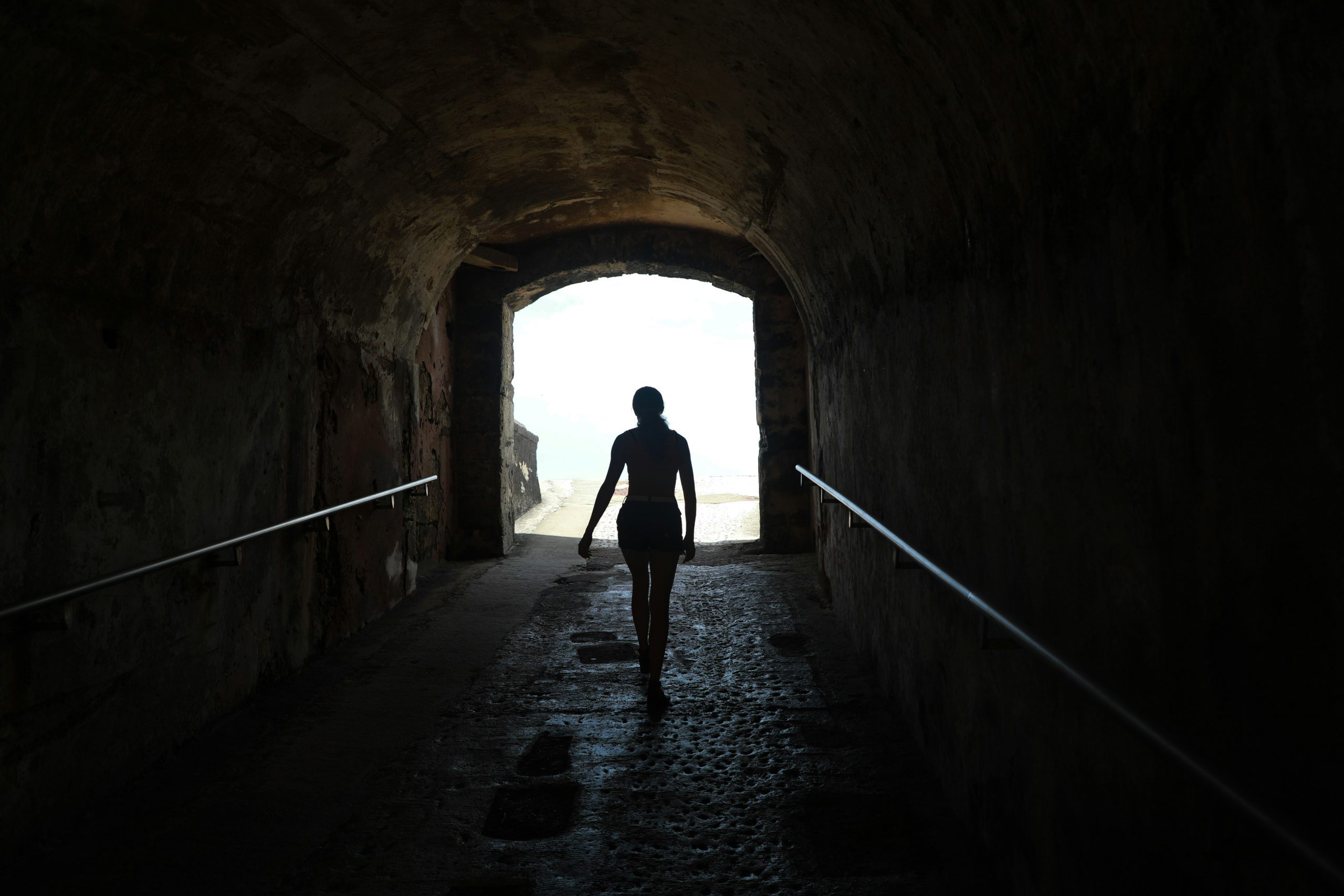My Body Is a Suitcase: An Autoethnographic Exploration of Links between Childhood Sexual Abuse and Eating Disorders
Author’s memo
In this essay I explore links between childhood sexual abuse, incest and eating disorders using my own experience from childhood and beyond as touchstone for all women who have difficulties negotiating sexual desire and hunger, given their premature introduction to sexuality in childhood.
I have structured this essay loosely but with a clear storyline cobbling together thoughts and theory from random places. So, the organisation of this essay is as unruly as disordered eating, as unpredictable and troublesome. Too much here, too little there.
I explore ways in which our relationships to our bodies impacts women’s relationship to food. And our relationships to our bodies arise in part because of how others treated us when we are small. Whether cherished and nurtured or objectified by adults who sought to use their children or other people’s children for their own gratification.
I link the sexual abuse, and more especially incest, with a variety of eating disorders. The connection between what we take into our bodies in the form of food, and what we take in otherwise, or what others who objectify us as commodities at their disposal force upon us, is inexorable.
‘In this essay I explore links between childhood sexual abuse, incest and eating disorders using my own experience from childhood.
It’s rife in our patriarchal culture, using women as the second sex, and children as fodder for their own troubled and tucked away internal children. An imbalance of power.
I also travel back to adolescence to that time when most of us reinforce our nascent identities, taking us out of the co-called innocence of childhood.
For me the art of adolescence was that of concealment. And the best concealment was to be invisible. This then is at the heart of my autoethnographic story.
I write it out of love for myself and for other women who struggle with disordered eating as a haphazard way to cope with child sexual abuse. This also reflects my experience of autoethnography as an invitation to explore hidden truths within myself and the others.
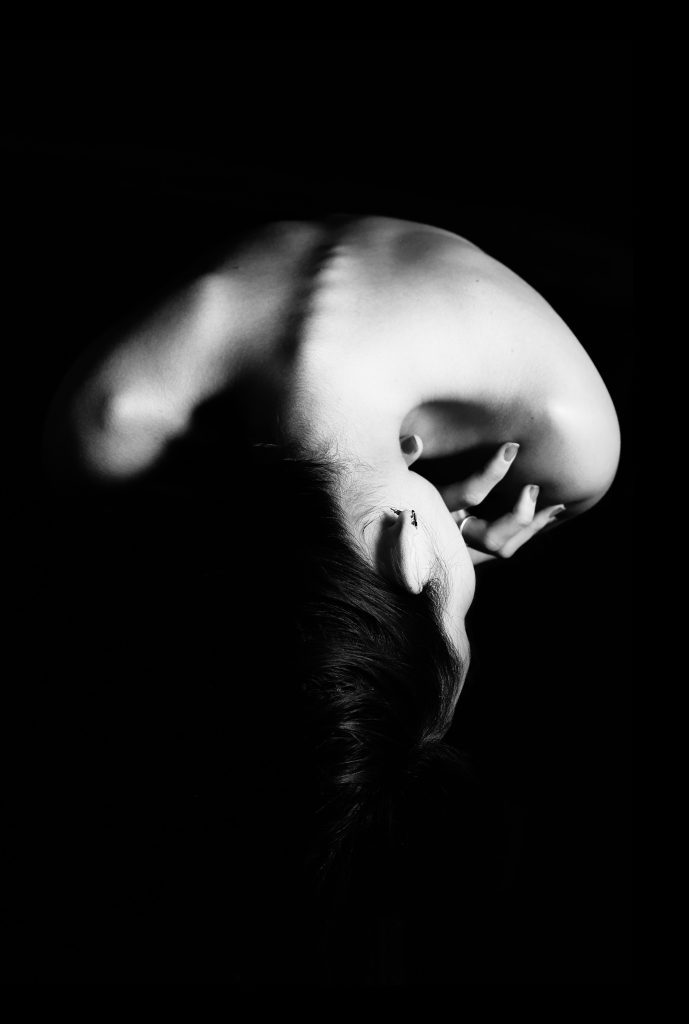
Introduction:
Diet culture shrinks women into imagining we must be like pencil thin celebrities or the models on cat walks who display impossible to wear clothes for the rich and famous. Works of art, these clothes, but at what cost to the bodies that parade them. Our diet culture magnifies us, shames us into imagining that we are monstruous if our bodies rate too high on the BMI scale. An algorithm of humanity that strait jackets us into believing we are failures. Made worse when we join the ranks of women who have been sexually abused as children.
Research demonstrates a link between such abuse and eating disorders of all kinds. As if women, in a bid to protect ourselves, resort to total control or almost no control over our eating, to quash our sexual desire and leave us with the illusion of safety in an otherwise unsafe world. Food, desire, and the body are inextricably linked and distorted through the male gaze leaving us with bodies like suitcases. Fit only for carrying around our contents without the burden of a rich emotional life. It’s time to spill the contents and reclaim our identities as fulsome human beings.
Don’t be scared of your hunger
Don’t fear the subterranean sensations that rise from your gut whenever you connect to a memory of childhood. To times when you did not understand what was happening to you or your body. When you did not understand what the grownups were saying or, worse still, doing.
Such were the times when I pleaded with my guardian angel to keep me safe, when my father sat in his chair in the lounge room and one by one took off his shoes and socks, then shirt and trousers. When he sat for some time in his white underpants, only to take them off, and then roam the house naked. As if to say, look at me and be disturbed.
‘Put your clothes on,’ I wished my mother would say, but she did not. Instead, she sat in her chair a few feet away and said nothing. While my father’s nakedness screamed: pay attention to me.
Now an adult, I cannot fathom the creeps of anxiety that crawl in my stomach, the cramping and guilt when I think of this. As if I have overeaten and must starve my body in response. As if it is still happening.
The need to eat gets confused with desire for physical contact in situations where a child is exposed to sexuality too soon. Eating, incest and desire
Echoes of memory
My father gets up from his chair and strides across the lounge to the hallway and his bedroom where he will sleep for five minutes, or an hour, and we cannot know from one day to the next how long he will be out of orbit. And in those moments, an uneasy peace descends, a lull in a storm, only, in no time, his voice will puncture the silence.
‘Com Liesje,’ he will call to my mother or my sister, and if neither responds, he will call my name. What will I do when he calls my name? I cannot unhear the sound of his voice and the slurring guttural slide across my name Liesbeth. Its second syllable pronounced bat, as if I am a fruit bat hung upside down in some dark cave or up high in a tree in the bush. Safest to behave as though nothing is happening. To stop eating and become invisible. Disembodied.
On disordered eating
Recently, I sat with my now adult daughters, and we talked about ‘disordered eating’. The way some women of my generation take pleasure in their ability to control their desire for food, the so called ‘wrong’ foods, and how much these attitudes have confused generations of today’s young women who now, in defiance, refuse to control such impulses. Instead, they want to love their bodies and eat out of hunger. The pleasures of honest, joyful eating. Not out of some fear of getting too big. Nor slip into comfort eating from unspoken emotional need. Or worse still, starve themselves to create an illusion of control over their unruly bodies.
I relish these conversations with my daughters even as I find myself hiding my thoughts. I do not fully understand them, other than to know that the passionate eating of food left me in my teens when I came to see the desire to eat, as for any other desire, including for sex, as dangerous. In part, because it showed. The only desire for women allowed then, became the desire to fulfill another’s needs. To find someone to love, someone to help. All other desires were to stay hidden.
A confusion of gender and generations
When the psychoanalyst, Sigmund Freud, and his collegial friend, the nose and throat physician, Wilhelm Fliess, decided the way to cure a young woman of her sexual anxiety was to operate on her nose, they hit upon the idea that our noses and genitals are connected. Their decision to remove bits of a woman’s body, like the decision to sever connections in the pre-frontal cortex in lobotomies of the so-called mentally ill, speaks to a tendency to reduce our desires to bodily parts, ignoring the complexity of hunger and sexual intimacy and the ways these two life forces interlink. Especially when there’s a history of incest.
‘You needn’t eat that,’ a thoughtful parent might say to their fussy eater at the dinner table. That is, if they have the wherewithal to recognise that the reluctance of their child to eat what is on offer links to the child’s sense of agency. Or desire. To be able to decide for themselves what children take inside their bodies.
‘Their decision to remove bits of a woman’s body, like the decision to sever connections in the pre-frontal cortex in lobotomies of the so-called mentally ill, speaks to a tendency to reduce our desires to bodily parts, ignoring the complexity of hunger and sexual intimacy and the ways these two life forces interlink.
Such agency includes decisions about other people’s bodies entering them. An aged uncle pinches his small niece’s cheek. A gesture of love or what?
Someone else puts his tongue in her mouth, his penis in her vagina, mouth, or anus, whether she welcomes this intrusion, or it is forced upon her. The horror stories of sexual abuse, or the romantic stories of love, are most often told from the patriarchal perspective by the one with the penis.
Some primordial drive to procreate, perhaps. Some insistence that if it feels good for one, it must be so for another. But in the confusion of gender and generations, including incest, when a parent conflates their child with an adult available to them, when such a parent decides it is okay – irrespective of the trauma to the child’s mind and body – to put their fingers, penis, or sexual desire inside their child – the child can lose all sense of agency. And just as Freud and Fliess’s muddled thinking led to bodily mutilations that nearly cost one woman her life, the child who is sexually abused, can gorge, or starve themselves in a life-threatening bid to reclaim their agency.
Our bodily carapace
So, it was for Roxanne Gay who found she was unable to stop eating when her parents sent her to board at school as a thirteen-year-old in the hope she might get a good education. They did not know that one year earlier, their daughter had been gang raped by a group of boys in a cabin not far from home. Lured there by the one she thought was her boyfriend.
The child Roxanne told no one and dealt with her trauma by building a bodily carapace of size to hide behind. Or so she suggests in her book Hunger,in which she describes the struggles of a woman, black, feminist and lesbian, in a world where your body does not fit the norm.
It’s easier to talk about gang rape, Gay writes, than to talk about your fat, given there is no language or tact for describing fatness. And so, she lands at one extreme of coping. Her wish to hide her body behind a wall of weight and paradoxically become invisible, or at least cease to be sexually desirable. For isn’t the thin person the only desirable one? Or so the mainstream and online media tells us. Despite the luscious heft of a mother’s breasts to her hungry baby. Breasts that in adulthood people sexualise into objects of desire.
For women with so-called eating disorders, there is a spectrum of protective strategies. From starving yourself, to eating too much. All of it in a bid to deal with desire, which gets tangled up with sexual impulses, especially in the face of childhood sexual abuse.
Servants in kitchens
My father stitched my mother’s dresses from material they chose together at a fabric shop. Bright floral patterns that my father fashioned into tight waisted and low-cut frocks my mother wore in summer. Perhaps the fact that my father had fashioned those dresses gave him licence to rip them off in moments of rage. My mother, like a servant in the kitchen preparing the family meal, became a woman undressed, her face flushed, her eyes ablaze with fear as she grabbed at the scraps of fabric left hanging around her hips while my father glowered with indignation. He refused to eat the food she prepared. He wanted only her body. And his open desire for that body and those of me and my sisters left me caught in a dissociated knot of avoidance.
Aspects of dissociation, a body cut off from its mind
There is a section in Alexandria Marzano-Lesnevich’s book The fact of a body: a murder and a memoir, where the narrator describes the joy of sexual contact with her newest girlfriend. Our narrator is gay, purely, she believes because she loves women, not because she was sexually abused as a child by her grandfather. She wants people to know this. Even if her grandfather had never touched her, as he did in stealth at night, she still would have preferred women to men.
But that’s not her point when she describes making love to her partner. In detail: the kissing, mouth on mouth, tongue to tongue, skin to skin, the touch of their hands. Just as her partner moves to reach her below, she is back in a liquid terror that leaves her aghast. She cannot go on. She must wrench herself and her partner out of their close bond, out of the joys of dissolving into one another for the moment of sexual ecstasy because her mind is ravaged by an unspoken memory. Her grandfather peeling back the blankets and his hands on her warm child’s body. Dissociation kicks in and she is railroaded for life.
It’s easier to write about these things than to experience them. The panic that creeps over a person when they slip into some mysterious terrain in which they are no longer the agent of their own movements, when the state of luminescence moves into a paralysis of mind and body that will not shift.
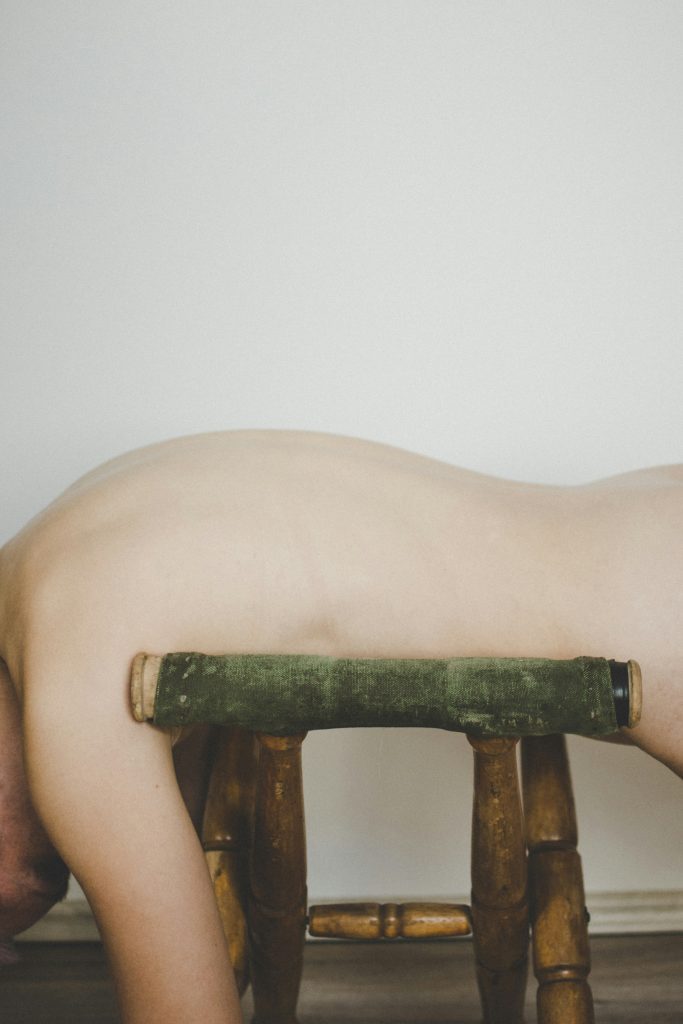
Flight, fright, or freeze
When we write, we build on memory and imagination to reconstruct these times. We pace ourselves. But when these events happen and later events trigger flashbacks, our bodies are once again awash with the cortisol of the moment. We flip into flight, fight, or a visceral freeze as most often accompanies trauma. The stuff of panic attacks, of re-living horrors you could not process when you were a child. Or the stuff your predecessors could not process and by some strange osmotic delivery from their DNA into yours, you picked up the danger signals. Skip into too much sensual pleasure and you will be wrenched out by unseen hands into dissolution and fear.
‘When we write, we build on memory and imagination to reconstruct these times. We pace ourselves. But when these events happen and later events trigger flashbacks, our bodies are once again awash with the cortisol of the moment.
Women like Gay and Marzano-Lesnevich, in their writing and their bodies, in their responses to invasion as children, give voice to a person’s struggle to find a foothold in a world that no longer feels safe. Unlike Gay, Marzano-Lesnevich does not write about eating as an issue, but she alerts us to other ways in which a premature introduction to sexuality can derail us. And make us feel unsafe.
We cannot eat in comfort if we feel unsafe. Just as we cannot enjoy sexual contact. Except in masturbatory ways for some, where all that matters is the stimulation of their bodies. For others, we freeze into sexual abstinence, and food become our means of comfort. Whether we eat too much, or eat in secret, anxious that people might see us with our mouths full: Whether we binge or purge ourselves with laxatives, to hide what we have taken in so that it does not show up on the outside to wrack us with guilt. Whether we starve ourselves. We find ways to use food – or promiscuity – to gain some illusion of control in a chaotic, dangerous, and out of control world.
On secrecy
When I was eighteen years old, my first year at university, my body was a burden of too muchness, after years of hiding it under a school uniform. One evening after night fall dropped its coat, I snuck out the door as my family slept, and skulked through the back streets of Cheltenham, all the time terrified of being accosted by a stranger in the dark, but also determined to make it to my boyfriend’s house. To spend the night, till early morning there, until just as the sun began its rise, I made the long return trip home and once more snuck through the back door and into my bedroom where my younger sister was still asleep. Back into my nightdress and under the blankets.
When my mother stuck her head around the door at seven o’clock to remind us it was time to get up for school and university, I saw a look in her eyes that told me she knew I had spent the night elsewhere.
She did not say a word. It was easier that way. If she did not know, she need not worry. Besides, there I was at home and safe in my own bed, all in one piece. Despite my father. What could it matter that I might have spent my night elsewhere in sin?
How to tame your body
My boyfriend Paul’s apartment stood in the dappled shade of a spindly lemon scented gum on the corner of the Nepean Highway and McFarlane Court in Highett. His room faced the front with a wide window that took in the morning sun behind crackly white Venetian blinds. Opposite the window stood a wall of wardrobes whose doors acted as full-length mirrors. I hated those doors. They gave access to the full sight of my body and when I undressed in the dark after I arrived at Paul’s – he already in bed and waiting for me – I feared him seeing my naked body in the mirror.
I was exposed in a state of undress that had terrified me ever since I turned twelve and noticed my body was changing into that of a woman. I disliked my body for its lumps, bumps, curves, and pubic hair and for the feelings it shot through me. The sense of invasion that followed were anyone other than me to see it. My own eyes were critical of every aspect of my form. The pimples that erupted on my back or down the centre of my breast cleavage. The red spots of acne that bubbled to the surface of my chin well past the time when my adolescent all-over-the-face pimples had passed.
‘…disliked my body for its lumps, bumps, curves, and pubic hair and for the feelings it shot through me.
I knew from things people had told me that acne was hormonal. That hormones coursed through our bodies subject to their own vagaries. They were meant to come and go cyclically to match the mystery of our periods. The almost monthly bleeding that stopped for a time from starvation after I hit university where I met a couple of young women, student teachers on my holiday job at Halls Bookstore where I first met Paul.
These women were also from a large family, even bigger than mine, a family of eleven who lived in Newport. Their parents were from Ireland. Helen and Joanna also worried about the size and shape of their bodies. To counter it, they developed a scheme whereby they ate only fruit, except when coerced into eating other foods at Sunday family meals. Between times, when left in control of their own diets, they feasted on apricots in summer, as well as plums and yoghurt. Apples and oranges in winter. Like my new friends I came to eat nothing but fruit and yoghurt, along with the occasional boiled egg for protein.
At university, I watched in awe as the roundness of my body grew angular and by the time I had left home and moved into a share house with my sister and her then best friend, within a year of leaving school, I had become a thin person, much as I still considered my body a problem.
‘My own eyes were critical of every aspect of my form.
I enjoyed the way clothes now fell off me. Unlike the problems I had at the end of my time at boarding school when I found that none of the clothes I wore before school fitted me. I had grown into a size sixteen and my older sister who went with me one day during the holidays between school terms to buy a pair of jeans was horrified.
‘Look at you,’ she said. ‘You’re as big as a horse.’ As big as a horse with thighs as thick as tree trunks. It was okay back in boarding school hidden under my school uniform with a dress wide enough to hide several sacks of turnips or whatever other winter vegetable connotes stodge.
Once out of school and into the summer days, it was harder to hide behind the thin cotton moo moos that we wore, the shorter the better. At least moo moos had dispensed with waists. No sign of the body beneath.
The triumph of self-control
‘You’ve grown so thin,’ my mother said when I visited at Christmas time during my twentieth year. I thrilled to think I had made an impression on her. That she might worry for me. That she might recognise me by what was missing rather than what was there. I had closed my heart to her and hidden it behind an overcoat of false superiority. I would not let her or anyone else know that I ached from neglect. That I longed for comfort, for closeness other than the physical stuff that came with sex, the intimacy of a small child in her mother’s arms. A mother who might stroke her head and tell her everything will be alright. A mother who could know about the pain and give it voice.
Sometimes I longed to go back inside that safe place in my mother’s body, even though I knew it was not a safe place. That my father might prod and poke from the outside and at night his thick penis might push inside my mother and get to me in my resting place.
‘I had closed my heart to her and hidden it behind an overcoat of false superiority. I would not let her or anyone else know that I ached from neglect.
It was better to stay concealed under a table playing with my sister and our dolls. It was better to imagine a place where we were safe. Far from the darkness of my bed at night. Far from my father’s visits in the night.
If this is what was required of women when they grew up, to welcome visits from men and their penises, whenever it took a man’s fancy, then I wanted none of it. I would become a nun. Even as the nuns themselves terrified me with their bodies, covered from top to toe. Black in winter, white in summer. At least they could hide themselves from men. At least they did not have to worry about how their bodies looked or what happened to the shape of them as they grew older. They did not have to worry about what they ate because no one would see signs of gluttony. That is, if they ate at all.
Models of abstinence
I never saw nuns eat. I never saw them sit down to a meal, to a cupcake, to a fruit bun or mug of cocoa at recess. And so, I decided, not only did the nuns not eat – because they did not eat – they did not use the toilet. Because they did not need the toilet, their bodies never let them down with bad smells and farts, or rumbling stomachs. Because they had no stomachs, they had no bottoms or vaginas. Their bodies were like machines. Safe from intrusion.
No holes into which men might put their penises. As a nun I could be safe. From all desire. My own and other people’s. Nuns were expert in self-denial. And I wanted to join them, to resist desire. My love for nuns was platonic, bodies did not come into it. Bodies were only the external trappings of our minds. It was our minds that did the loving. Our bodies only got in the way.
On self-control
They’ve done experiments with small children where they sit each child in front of a lolly and tell them that if they can resist taking it for something like ten minutes, then they can have two lollies. The researchers conduct this test to demonstrate the development of impulse control and of will power. Some kids can do it. They can hold out for the greater reward. Others cannot. It might look to be a good thing, this self-control, but is it?
Anorexia, which translates roughly into nervous eating, so nervous it seems the person suffering from such an affliction literally starves themself to death. Not only trying to get control over their lives but also a refusal to compete for anything. The idea is that the person who tries to take control over her life by getting control of her eating, does so by working hard to convince herself that she has no such desire for food, or nourishment, or even for love. Which then gets tangled up in sexuality. Those two great life forces, food, and sex, bound together as we know, biological determinants for personal survival, and survival of our species. All bound up in pleasure.
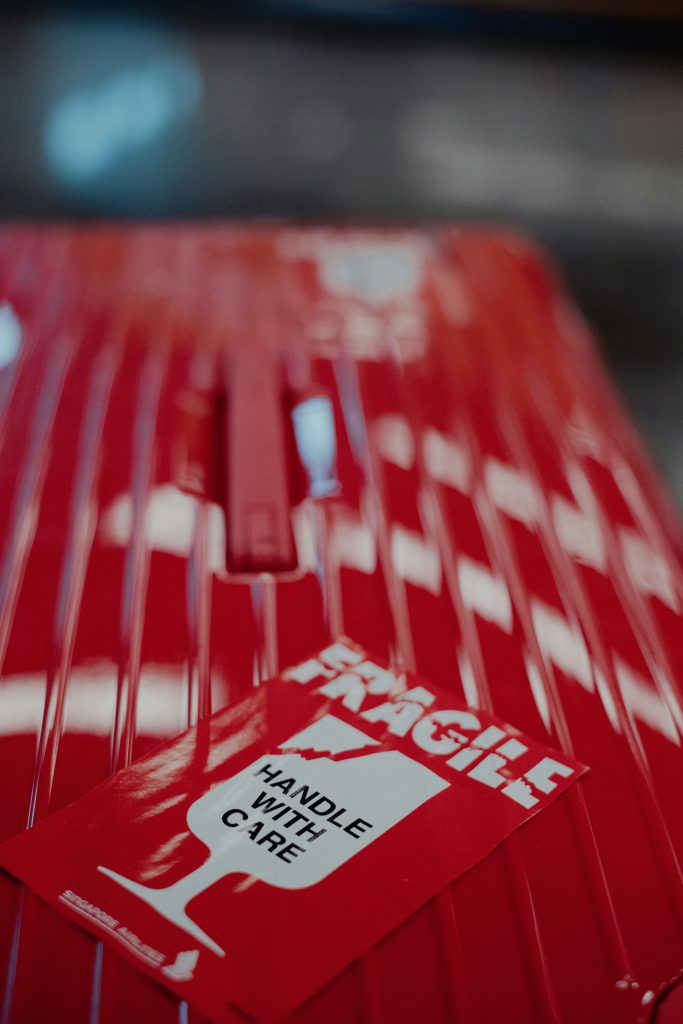
A cocoon of safety
When I was small I dreamed of living in a self-contained tent. No spiders or snakes could crawl in under the flaps. The walls and floors were interconnected, and the door was zipped all round like a sleeping bag that fully enclosed you.
In my tent I kept a fridge filled with ice cream and other delectables. There were lollies too, but by the time I began to see a therapist, the delectables in my fridge had morphed into ice cream only, my then favourite food. Food as a child mattered far more than sex. Sex was alien until adolescence when the rumblings of my hormones met my fear of invasion and expectation.
On Sunday nights we ate the only ice cream allowed, a brick of Peter’s Neapolitan, which my older sister sliced into ten equal slices. My father a diabetic avoided all sweets. He too avoided food, and pencil thin on a diet of St Agnes Brandy and cigarettes, he fed off other desires. My mother, my sisters and me, at the centre, whether or not we wanted it.
To own your body
Was this the way my mother felt in the kitchen all those years ago after my father ripped off her clothes? So visible and yet invisible. On display for all to see, but without ownership of her body. This brings me to the comedian, Hannah Gadsby.
When Gadsby performed at Hamer Hall in Melbourne, a small figure alone on a stage however ‘large’ she might be in real life. When people criticised her for her shape, she did not worry, she told her audience. She was ‘Rubenesque’. Then she showed us one of Ruben’s paintings, three naked women dancing in a circle. She showed us several other photos from the old masters, groups of three women naked.
‘Was this the way my mother felt in the kitchen all those years ago after my father ripped off her clothes? So visible and yet invisible. On display for all to see, but without ownership of her body.
What was it about three naked women? she asked. Were they fearful of travelling alone? Gadsby focused her talk on the naming of things, which has traditionally been undertaken by men. I think of Freud and Fliess. Gadsby described how she had named her dog Douglas, after the Pouch of Douglas, a little-known part of women’s anatomy, a space between the rectum and the posterior wall of the uterus in the female body that serves some purpose, though Gadsby could not imagine what purpose that might be. This part of a woman’s body was so named after the Scottish doctor who discovered and named it in the 1800s, after a woman Mary Tofts had fooled people she had given birth to a rabbit.
Gadsby’s jokes rolled on. Her view of women through men’s eyes. But as the comedian argues, we were not born to see ourselves from the outside in, rather our bodies are designed to see ourselves from the inside out. If we were born to look at ourselves from the outside in, she said we’d, have eyes on every one of our fingers, but we do not. This notion is a great comfort. To view the world from inside and not from the gaze of others, male and otherwise.
On invisibility
They say, a woman over fifty ceases to be visible. Free from the male gaze. Helen Garner sees it as a freeing time, no longer sexually available, no longer on the sexual market and therefore no longer needing to set ourselves the goal of external beauty for the camera. A different angst arises though when you fear your image as an older woman marks you as one not to be taken seriously, or to be ignored. Or our childhood memories of a father in the night prevail.
Research shows us that people on the receiving end of incest are far more likely to binge eat and vomit to control their intake. Or they might experience confusion over the desire to eat and aim to limit what they take in. Food like sex becomes dangerous. But it’s one thing we can control, in response to our past inability to control what was put into us by those who were meant to nurture us.
A voice inside tells you not to eat. The voice that objectifies you. Once you’re made aware of your body, usually in adolescence, as almost all women are, you enter the realm of self-consciousness, which is compounded when sexuality is introduced too soon, as in situations of incest. When we become objects of desire we begin to police our bodies and the ways we behave, to be more acceptable, as Fiona Wright describes, ‘even invisible and small’. In contrast to our desires from childhood, to eat, to love and play.
You don’t write about incest
You write around it. Always to one side. You write about what it’s like to be a small child, not knowing what’s going on but knowing that something’s going on. Something that should not be happening, and the reader is left to guess. You can talk about the way your father visits at night when everyone else is asleep and safe in their beds. You can talk about the stuff of lying there in terror, the waiting for his hands on your body. The smell of his breath as he leans over you.
You can write these things, but you cannot enter the world of a body that is frozen with fear. The thought of anyone seeing you naked, the thought of anyone touching you hurts. You can go through the motions, make love with your husband, kiss your children, hug your friends, but none of it feels open or sincere. None of it comes from the heart of you. You have sealed your heart off like a bank vault where all that is of value is hidden away from view. Out of sight. No one must see.
‘You write around it. Always to one side. You write about what it’s like to be a small child, not knowing what’s going on but knowing that something’s going on.
You write into this void knowing the valuables are all tucked away, and no one must see them for fear of what they might do. For fear of your father’s hands on your thighs, his tongue in your mouth, his hot breath on your neck and when he lies down beside you and you feel the cold of his naked skin against your small warm body, your mind goes into overdrive, and you shoot up to the ceiling.
You take flight like a migratory bird hovering over the scene, no longer involved just watching and waiting. Waiting till it is over. His hand between your legs, always between your legs because you have no breasts to speak of nothing up top to offer him like your mother or your sister who is older than you. And then it’s over but it’s never over. You’re forever on the alert.
‘You have sealed your heart off like a bank vault … Out of sight. No one must see.
The ‘odour’ of other people’s thoughts. As Elizabeth Strout writes, strikes me as the most onerous of life’s possibilities. The way they mix with your own. The way your own self-doubts become the doubts of others. You cop a double whammy of derision from within your own mind, which you imagine is also coming from the minds of others. Especially the sight of your body.
Look at that girl. What a shocking sight. Overfull, in second-hand clothes in a body that falls around her and with nothing else to show but her need. Like an exposed tuber, one ripped out of the soil too soon and left on the surface, exposed to dry out, and if not tended with care, a failure of imagination, an eyesore, an interruption to the smooth flow of life. She must not eat. Or if she eats she must hide the effects, binge, then vomit, or eat too much too often, to push down those feelings of despair. Or anger, or sadness or desire. Her body a suitcase that must never be opened.
Behold the impossibility of being a woman
Too fat, too thin, too old, too young, too loud, too soft, too much. Altogether, too much. Whether she eats or starves herself. Food is life. Food is fear. The appetites of our bodies remain hidden, private, secret, unless they show up on the outside. If only we did not fear them. And instead, live lives unfettered by unmet, forbidden desire. Made more confusing by a father who visits your bed in the night, his body in silhouette at the open door.
When you’re visible you can be seen. And when you’re seen you can be touched and when you’re touched you can be hurt. Better to hide all vulnerability inside your suitcase.
Coda: My father never touched me as I feared he might. But in not touching me, he left me with a lifelong fear of being touched. It will not go away. It has found its way into all my connections with people. But it has also helped me to become the writer I am today. And this to me is a gift. The gift of stories. My story meshed with yours. The universal encapsulated in the human desire to eat, and to love and be loved, while also protecting our bodies from harm.
Credits
Image of a naked woman by Jairo Alzate for Unsplash
Featured image by Taylor Deas Melesh for Unsplash
Image of a person on brown wooden bench by Janosch Lino for Unsplash
Image of a red suitcase by Bao Menglong for Unsplash
Learn More
New to autoethnography? Visit What Is Autoethnography? How Can I Learn More? to learn about autoethnographic writing and expressive arts. Interested in contributing? Then, view our editorial board’s What Do Editors Look for When Reviewing Evocative Autoethnographic Work?. Accordingly, check out our Submissions page. View Our Team in order to learn about our editorial board. Please see our Work with Us page to learn about volunteering at The AutoEthnographer. Visit Scholarships to learn about our annual student scholarship competition
About the Author
Elisabeth Hanscombe who holds academic status at Flinders University, completed her doctorate in 2012 on the topic ‘Life writing and the desire for revenge’. She is a practicing psychotherapist and psychologist, well equipped to explore the connections between her early life and later journey into her profession, which gives access to the experience of others in their efforts at self-understanding.
Hanscombe has published numerous short stories and essays in autobiography, psychoanalysis, testimony, trauma and creative non-fiction. Her first book The Art of Disappearing was published by Glass House books in 2017. Her next book, The Museum of Failure: A re-membering, is out in February 2025. She blogs at http://www.sixthinline.com.


